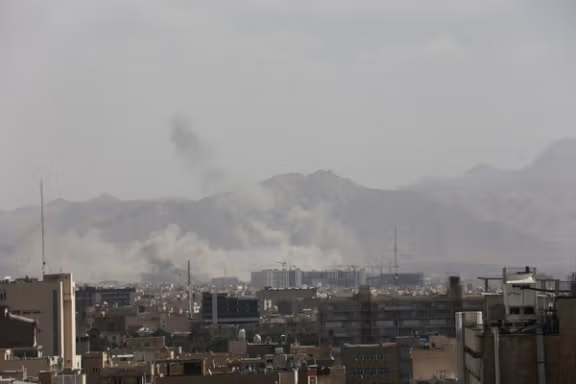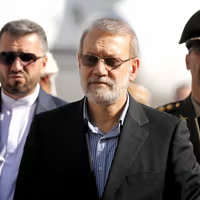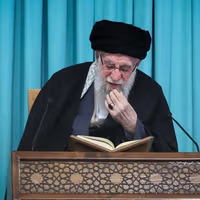Here’s the lay of the land.
Tehran. A late summer sunset. A young woman in a loose linen coat rides her moped past a billboard of slain commanders of the June war with Israel. Her hair, uncovered, whips through the air as the call to prayer echoes over rooftops scrawled with graffiti.
It’s a fleeting image— half defiance, half survival— but it captures the contradiction of life in an ailing religious state run by an 86-year old ruling over a young population which yearns for a better life.
From above, a political system struggles to survive by shedding its skin into a harder, more securitized form. From below, society is defying the pressure by quietly reinventing itself, thriving together in social and artistic places, unveiled and unbowed.
Iran’s future hangs in balance as the two realities collide.
Erosion or renewal?
Sociologists offer two contrasting readings of Iran’s condition.
One sees society at its weakest: social capital eroding, trust fading, public bonds thinning. Economic hardship has forced Iranians inward, building small islands of survival in a sea of uncertainty.
The other sees adaptation at work. Even under pressure, society is reorganizing itself. Signs of this regeneration can be found in the behavior of the young, in underground music and digital satire, in cafés and rooftops reclaimed as shared space.
Social change in Iran rarely announces itself; it leaks through the seams. What may look like resignation is often invention—a culture that has learnt to breathe under constraint.
Shedding skin for survival
The state seeks to ensure its survival by becoming thicker and more controlling—fortifying itself to endure a self-made, permanent state of emergency.
Yet it appears to be hollowing from within, clinging to symbols and slogans that few outside the security apparatus still believe in, let alone fight for.
Ordinary Iranians, especially the young, have moved on.
Everyday life in the cities reveals the contours of this transformation: in dress codes and cultural consumption, underground music, the language of youth and the growing visibility of women in public spaces.
Everyday life as resistance
Walk through Tehran and you feel two clocks ticking at once.
On one hand, the city wears the uniform of authority: portraits, banners, prohibitions. On the other, life insists on slipping past the censors.
It’s there in loosened fabrics and street style, in the sly humor of street art, in laughter spilling from cafés that double as sanctuaries.
A generation raised amid sanctions and firewalls seeks meaning not in possessions but in experiences—in fleeting freedoms, in self-expression, in joy reclaimed as a political act.
Beneath repression, a new cultural grammar is taking shape. It is diffuse yet deliberate, defiant yet creative. It asserts and insists on its agency without shouting.
Where next?
Iran’s future is not fixed.
If society can weave cohesion from its scattered threads, a “soft reconstruction” may emerge—a gradual rebuilding from below, driven by civic networks and the imagination of the new generation.
But if political and economic pressures persist and society turns inward, even this fragile tissue could tear. The state might endure, getting hollower but nastier every day
The greatest reason for optimism is that after nearly half a century of theocratic rule, Iranian society remains generative—in art, language, humor.
Life continues in fragments: whispered jokes on buses, basement exhibitions, online debates that flicker between VPNs.
From that vitality springs possibility. And from possibility, hope.










